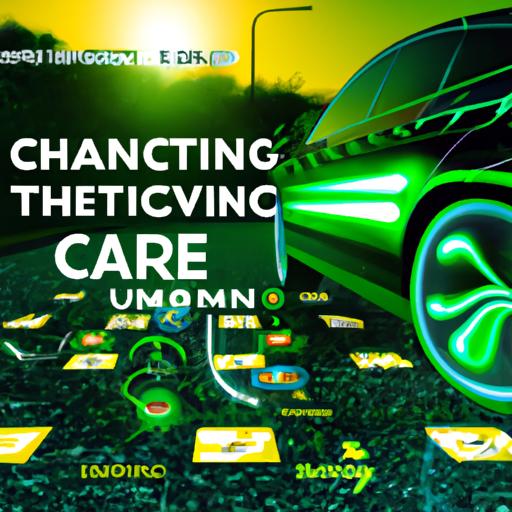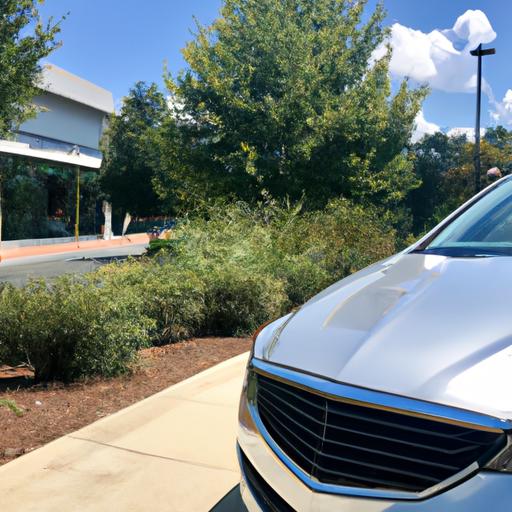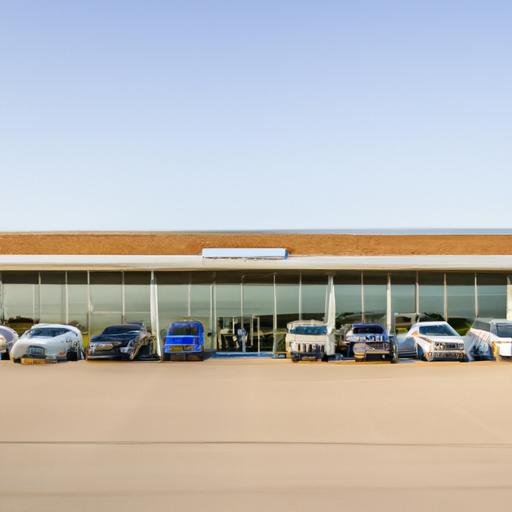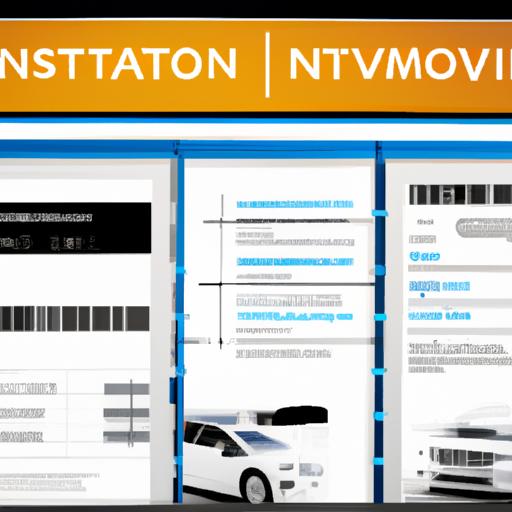Digital Marketing for Automotive Industry: Revolutionizing the Way Cars are Sold
Introduction
In today’s fast-paced digital age, the automotive industry is experiencing a significant shift in the way cars are marketed and sold. Digital marketing has become a vital tool for automotive businesses to reach their target audience effectively. But what exactly is digital marketing in the automotive industry?
Digital marketing in the automotive sector encompasses a wide range of online strategies and tactics aimed at promoting vehicles, attracting customers, and driving sales. From search engine optimization (SEO) to social media advertising, digital marketing leverages the power of the internet to connect car manufacturers, dealerships, and consumers in a dynamic and engaging way. The importance of digital marketing for automotive businesses cannot be overstated, as it allows them to stay ahead of the competition, build brand awareness, and engage with customers on a personal level. Let’s delve deeper into the world of digital marketing for the automotive industry and explore how it is revolutionizing the way cars are bought and sold.
Trends in Digital Marketing for Automotive Industry
Shift towards Online Research and Purchasing
In recent years, there has been a noticeable shift towards online research and purchasing in the automotive industry. Consumers are increasingly turning to the internet to research different car models, compare prices, read reviews, and even make purchases online. This trend has been accelerated by the convenience and accessibility of online platforms, allowing customers to browse a wide range of vehicles from the comfort of their own homes. Automotive businesses need to adapt to this trend by optimizing their online presence, providing detailed information about their products, and offering seamless online purchasing options to cater to the needs of tech-savvy consumers.
Use of Social Media and Influencer Marketing
Social media platforms have become powerful tools for automotive businesses to connect with their target audience, build brand awareness, and drive engagement. By leveraging the reach and influence of social media channels such as Facebook, Instagram, and Twitter, car manufacturers and dealerships can showcase their latest models, run targeted advertising campaigns, and interact with customers in real-time. In addition, influencer marketing has emerged as a popular strategy in the automotive industry, with social media influencers collaborating with brands to promote their products to a wider audience. This trend highlights the importance of building strong relationships with key influencers to amplify brand messaging and reach a larger customer base.
Importance of Mobile Optimization
With the majority of consumers using smartphones and tablets to browse the internet, mobile optimization has become a crucial aspect of digital marketing for the automotive industry. Automotive websites and online platforms must be optimized for mobile devices to ensure a seamless user experience, fast loading times, and easy navigation. Mobile optimization not only improves the overall user experience but also boosts search engine rankings, as search engines prioritize mobile-friendly websites in their search results. By prioritizing mobile optimization, automotive businesses can effectively reach and engage with mobile users, driving traffic to their websites and increasing conversions.
Strategies for Digital Marketing in the Automotive Industry
Search Engine Optimization (SEO) for Automotive Websites
In the competitive landscape of the automotive industry, having a strong online presence is crucial for attracting potential customers. Search Engine Optimization (SEO) plays a key role in ensuring that automotive websites rank high in search engine results pages, making them more visible to users searching for vehicles or related services. By optimizing website content, meta tags, and keywords, automotive businesses can improve their search engine rankings and drive organic traffic to their sites.
Pay-Per-Click (PPC) Advertising for Automotive Businesses
Pay-Per-Click (PPC) advertising is another effective digital marketing strategy for automotive businesses looking to increase their online visibility and generate leads. With PPC campaigns, automotive companies can target specific keywords and demographics, ensuring that their ads reach the right audience at the right time. By paying only when users click on their ads, automotive businesses can maximize their marketing budget and track the effectiveness of their campaigns in real-time.
Content Marketing and Storytelling for Automotive Brands
In a crowded marketplace, automotive brands need to differentiate themselves from the competition and connect with consumers on a deeper level. Content marketing and storytelling are powerful tools that allow automotive businesses to engage with their audience, build brand loyalty, and showcase their unique selling points. By creating compelling and informative content, such as blog posts, videos, and social media updates, automotive brands can establish themselves as industry leaders and forge lasting relationships with customers.
Case Studies of Successful Digital Marketing Campaigns in the Automotive Industry
Example 1: Tesla’s Use of Social Media and Content Marketing
Tesla, known for its innovative electric vehicles, has set a benchmark in the automotive industry with its strategic use of social media and content marketing. Through engaging and informative posts on platforms like Twitter, Instagram, and YouTube, Tesla has created a loyal following of enthusiasts and potential customers. By showcasing the latest advancements in electric vehicles and sustainability, Tesla has effectively leveraged social media to build brand awareness and drive sales.
Example 2: Ford’s SEO Strategy for Automotive Websites
Ford, a longstanding player in the automotive industry, has embraced the power of search engine optimization (SEO) to enhance its online presence and reach a wider audience. By optimizing its website with relevant keywords, high-quality content, and user-friendly design, Ford has significantly improved its search engine rankings and visibility. This strategic approach to SEO has not only driven organic traffic to Ford’s website but has also increased lead generation and conversion rates for the brand.
Example 3: Audi’s Influencer Marketing Campaign
Audi, a luxury car manufacturer, has successfully tapped into the world of influencer marketing to promote its vehicles and engage with a younger demographic. By partnering with popular social media influencers and celebrities, Audi has been able to reach a broader audience and create authentic connections with potential customers. Through sponsored content, product placements, and influencer collaborations, Audi has effectively leveraged influencer marketing to showcase its brand values, features, and benefits to a new generation of car buyers.
Challenges and Opportunities in Digital Marketing for Automotive Industry
Data Privacy and Security Concerns
In the digital age, data privacy and security have become paramount concerns for automotive businesses engaging in digital marketing. With the collection of customer data for targeted advertising and personalized marketing, safeguarding this information is crucial to maintain trust and credibility. Ensuring compliance with data protection regulations and implementing robust security measures is essential to address these challenges effectively.
Competition from Online-Only Car Dealerships
The rise of online-only car dealerships poses a significant challenge to traditional automotive businesses that rely on physical showrooms. These digital-first companies leverage e-commerce platforms and digital marketing strategies to reach customers directly, offering convenience and competitive pricing. To stay competitive, traditional dealerships must adapt their marketing strategies, enhance their online presence, and provide unique value propositions to attract and retain customers in the digital landscape.
Opportunities for Personalized Marketing and Customer Engagement
Despite the challenges posed by data privacy concerns and online competition, digital marketing in the automotive industry also presents exciting opportunities for personalized marketing and customer engagement. By leveraging data analytics and customer insights, automotive businesses can create targeted campaigns that resonate with their audience, driving customer loyalty and satisfaction. Implementing personalized marketing strategies, such as tailored promotions and interactive content, can enhance the overall customer experience and differentiate brands in a crowded marketplace.
Conclusion
In conclusion, digital marketing has become a game-changer for the automotive industry, transforming the way cars are marketed, sold, and experienced by consumers. As car buyers increasingly turn to the internet for research and purchasing decisions, automotive businesses must adapt their marketing strategies to meet these evolving consumer behaviors.
By embracing digital marketing tactics such as SEO, PPC advertising, and content marketing, automotive brands can effectively engage with their target audience, build brand loyalty, and drive sales. The success stories of companies like Tesla, Ford, and Audi demonstrate the power of digital marketing in creating impactful campaigns that resonate with consumers and drive business growth.
As we look to the future, the automotive industry will continue to evolve, and digital marketing will play an increasingly crucial role in shaping the way cars are marketed and sold. By staying ahead of the curve, leveraging the latest digital marketing trends, and focusing on customer engagement, automotive businesses can position themselves for success in the ever-changing landscape of the automotive industry. Embracing digital marketing is not just a choice but a necessity for automotive businesses looking to thrive in the digital age.






